

Is There Such a Thing as Truth? Image: Hrag Vartanian Noam Chomsky and Hilary Putnam on how language connects us to the world.
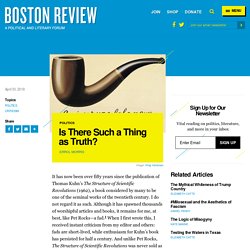
Using Story to Change Systems. The Word is… 'Unstucking': How changing your words can get your brain moving again… - “Words and magic were in the beginning one and the same thing, and even today words retain much of their magical power.
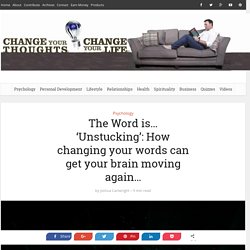
By words one of us can give another the greatest happiness or bring about utter despair; by words the teacher imparts his knowledge to his student; by words the orator sweeps his audience with him and determines its judgments and decisions. Words call forth emotions and are universally the means by which we influence our fellow creature. Why is pop culture obsessed with battles between good and evil? This Is How To Quit Bad Habits Without Willpower: 3 Secrets From Neuroscience - Barking Up The Wrong Tree. Before we commence with the festivities, I wanted to thank everyone for helping my first book become a Wall Street Journal bestseller.
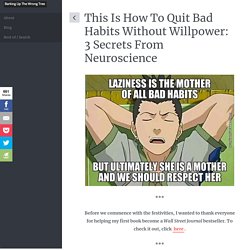
To check it out, click here. Got any serious bad habits? Leaving Facebook. The Power in Writing About Yourself - The Atlantic. "This is not a replacement for people or human contact," said the designer Albert Lee of his new creation, an app called Emojiary.

I wanted to believe him. Every day you get a text from the Emojiary bot. It asks how you're doing. You write it back, texting out your most visceral feelings, and it accepts them without judgment. At least, none that I was able to sense. This is all meant to conjure a daily moment of cathartic introspection, of candid self expression. Baggage - Superpowers pt. 2. The Six Main Stories, As Identified by a Computer - The Atlantic.
“My prettiest contribution to my culture,” the writer Kurt Vonnegut mused in his 1981 autobiography Palm Sunday, “was a master’s thesis in anthropology which was rejected by the University of Chicago a long time ago.”

By then, he said, the thesis had long since vanished. (“It was rejected because it was so simple and looked like too much fun,” Vonnegut explained.) But he continued to carry the idea with him for many years after that, and spoke publicly about it more than once. It was, essentially, this: “There is no reason why the simple shapes of stories can’t be fed into computers.
They are beautiful shapes.” That explanation comes from a lecture he gave, and which you can still watch on YouTube, that involves Vonnegut mapping the narrative arc of popular storylines along a simple graph. Yuval Harari, author of Sapiens, on how meditation made him a better historian. The 10,000-Year Geneaology of Myths. The “Shaft Scene” from the Paleolithic cave paintings in Lascaux, France.
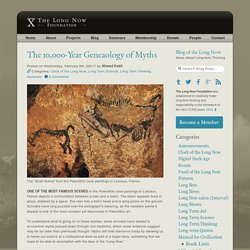
ONE OF THE MOST FAMOUS SCENES in the Paleolithic cave paintings in Lascaux, France depicts a confrontation between a man and a bison. The bison appears fixed in place, stabbed by a spear. The man has a bird’s head and is lying prone on the ground. Scholars have long puzzled over the pictograph’s meaning, as the narrative scene it depicts is one of the most complex yet discovered in Paleolithic art. To understand what is going on in these scenes, some scholars have started to re-examine myths passed down through oral traditions, which some evidence suggest may be far older than previously thought.
Languaging. Let’s ditch the dangerous idea that life is a story. ‘Each of us constructs and lives a “narrative”,’ wrote the British neurologist Oliver Sacks, ‘this narrative is us’.

Likewise the American cognitive psychologist Jerome Bruner: ‘Self is a perpetually rewritten story.’ And: ‘In the end, we become the autobiographical narratives by which we “tell about” our lives.’ Or a fellow American psychologist, Dan P McAdams: ‘We are all storytellers, and we are the stories we tell.’ And here’s the American moral philosopher J David Velleman: ‘We invent ourselves… but we really are the characters we invent.’ How Our Perceptions Shape Our Reality. If you asked someone, “Do things exist?”
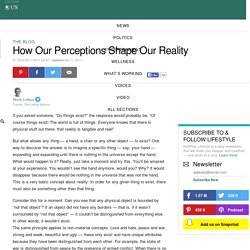
The response would probably be, “Of course things exist! The world is full of things. Everyone knows that there is physical stuff out there, that reality is tangible and real!” But what allows any thing — a hand, a chair or any other object — to exist? One way to discover the answer is to imagine a specific thing — say, your hand — expanding and expanding until there is nothing in the universe except the hand. Consider this for a moment. Why Brand Storytelling Is the New Marketing: An Interview with Robert McKee.
Who is Robert McKee?

According to many, he’s the world’s foremost educator on story form and brand storytelling. McKee’s students have collectively won 60 Oscars, 200 Emmys, and hundreds of other prestigious awards. John Cleese has said of his seminar, “It’s an amazingly important course that I’ve gone back to do three times,” and marketers from brands such as Kraft Foods and Pepsico have credited McKee’s seminar, Storynomics, with transforming the way they reach and engage their audiences. Alex Paufler, CEO and president of Mercedes-Benz Thailand, recently told me the value of McKee’s doctrine: “Customers, business partners, and employees do not remember numbers or bullet points well, but they remember stories.
Thus, talk in stories.” What favourite childhood books reveal about the psyche. How does a book get on The New York Times bestsellers lists?

For those outside the publishing industry, the question seems tautological. Overcoming Bad Inner Voices. Prescribing A Story? Medicine Meets Literature In "narrative Medicine" In the November issue of The Lancet, Chris Adrian, MD, postulates about what might be called “narrative medicine.” How do stories and poems alter our experience of caregiving, illness, and suffering? Does literature “help”? Adrian, who is trained in both creative writing and medicine, thinks that artistic expressions of experience do bring something to clinical care, whether care is experienced on the giving or the receiving end. Researcher: Hallucinatory 'voices' shaped by local culture.
By Clifton B. Parker Tanya Luhrmann, professor of anthropology, studies how culture affects the experiences of people who experience auditory hallucinations, specifically in India, Ghana and the United States. (Image credit: Steve Fyffe) People suffering from schizophrenia may hear “voices” – auditory hallucinations – differently depending on their cultural context, according to new Stanford research. In the United States, the voices are harsher, and in Africa and India, more benign, said Tanya Luhrmann, a Stanford professor of anthropology and first author of the article in the British Journal of Psychiatry.
The experience of hearing voices is complex and varies from person to person, according to Luhrmann. Steps to Turn Off the Nagging Self-Doubt in Your Head. Think of the last time you told yourself something critical or negative. Then think of the last compliment you gave yourself. Which is easier to remember? Many of us—whether due to genetics, brain chemistry, our experiences or coping skills—tell ourselves way too many negative thoughts. Against Self-Criticism: Adam Phillips on How Our Internal Critics Enslave Us, the Stockholm Syndrome of the Superego, and the Power of Multiple Interpretations. Fastcompany. Reporting for this story took a different turn from the beginning. George Lakoff - What Makes Personal Identity Continue. Let’s ditch the dangerous idea that life is a story ...
This Is Your Life (and How You Tell It) ‘Fake it ’til you make it’ is psychologically damaging. Our lives and careers are filled with examples of inauthentic behavior. We feign interest in meetings or laugh at our boss’s bad jokes in order to be positive team members, build relationships, and accomplish shared goals. Do thoughts have a language of their own? The... - Lapidarium notes. A Conversation With Jamie Holmes, Author of 'Nonsense,' About Humans' Discomfort With Uncertainty. Why story is used to explain symphonies and sport ma... How Stories Change the Brain. 10,000 Years of Oral Narrative.
Myths and Archetypes. Why You're Stuck in a Narrative. For some reason the narrative fallacy does not seem to get as much play as the other major cognitive fallacies. Achieving A Greater Sense of Wellbeing. Simple Reality BLOG. Schema. What is the Self? The Nature of the Self: Experimental Philosopher Joshua Knobe on How We Know Who We Are. Change the Story! The Internal Dialogue: Mastering the Unseen Forces That Shape Our Destiny.
‘Inner Voices': Hearing the Voice in the Guardian. Talking to Yourself: A Sign of Sanity. How To Deal With Negative And Obsessive Thoughts. How to Rewire Your Brain For Success. How to Rewire Your Brain for Success. Brené Brown Rising Strong Excerpt. The Secret to Breaking Out of Our Most Destructive Habits. Why People Behave in Self-Defeating, Irrational Ways and How to Really Change. Tyler Cowen: Be suspicious of stories.
Yuval Noah Harari: What explains the rise of humans? What Makes Humans Different? Fiction and Cooperation. Consciousness Began When the Gods Stopped Speaking: Julian Jaynes’ Famous 1970s Theory. The Alphabet vs. The Goddess Lecture by Dr. Leonard Shlain. Why Stories Matter - Marshall Ganz. Charles Eisenstein: The Two Great Stories. Differential Language Analysis - WWBP. Innovation: Software to track our emotional outbursts - tech - 08 May 2009. TV Tropes. Uk.businessinsider.